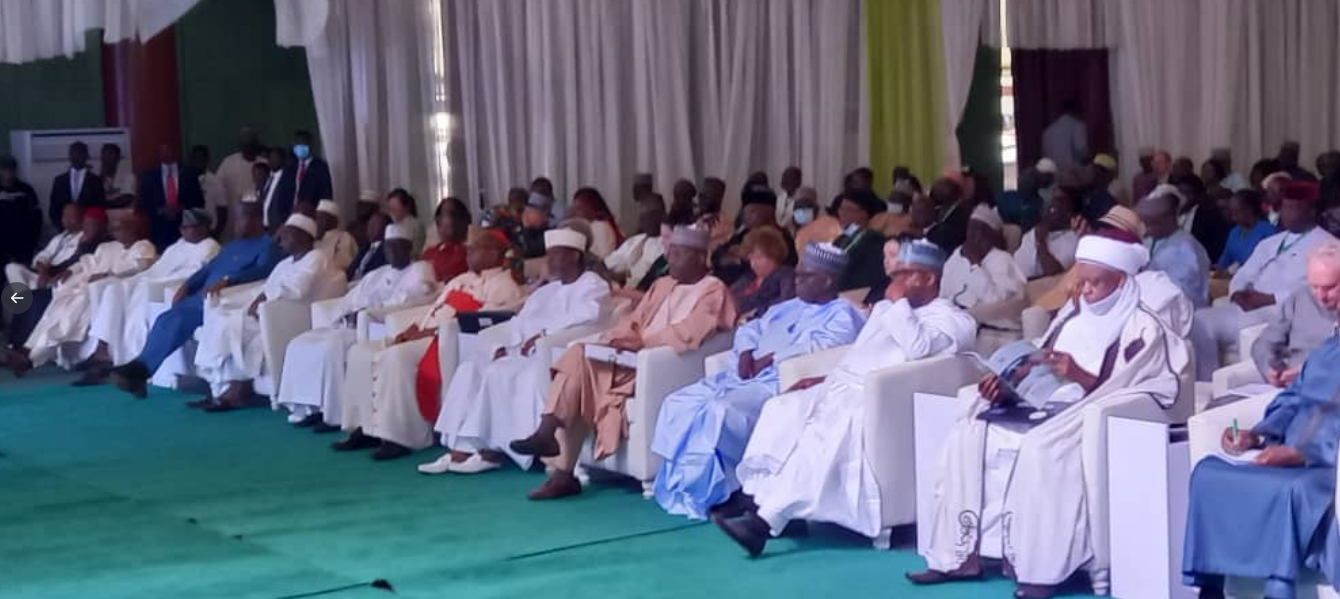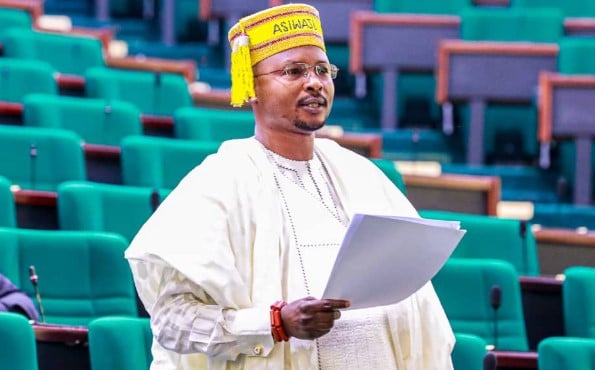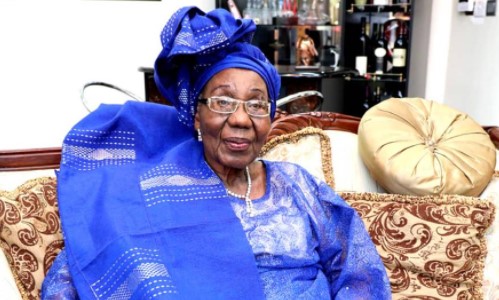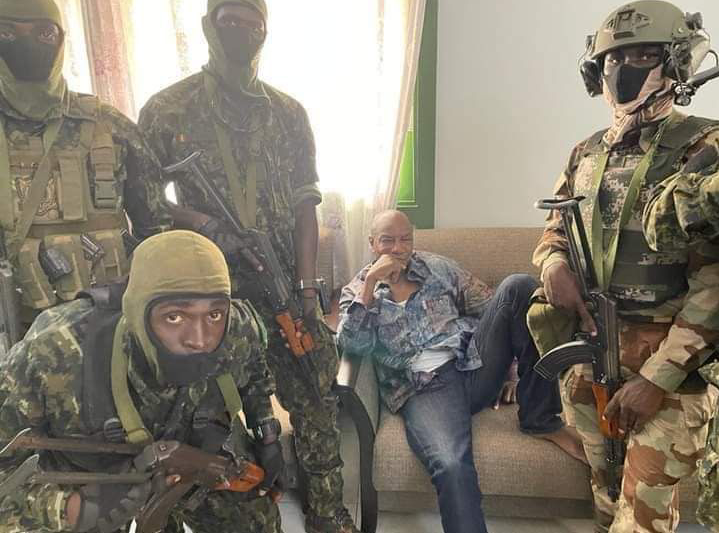When Reuben Abati of Arise News asked the presidential candidate of the African Action Congress (AAC), Omoyele Sowore, during a live interview on their morning TV Show, on Thursday, September 29, 2022, whether the Kiribo-born activist-turned politician would be attending the National Peace Accord signing ceremony, organised by the National Peace Committee (NPC) slated for later in the day, in Abuja the federal capital territory? He responded, saying: “Yes, even though, I have my reservation about it”, as to what necessitates such, when the country is not at war. But you and I know that electoral contests in Nigeria, at any level, are much fiercer than being at war.
I could remember, sometime in 2007, in the run-up to that year’s general election, on February 10, to be precise, while addressing a group of elders and other stakeholders from Abeokuta North Local Government Area of Ogun State, the then President, (retired) General Olusegun Obasanjo said, “the forthcoming elections would be a do-or-die affair”. Permit me to henceforth refer to the above quote, as “the Abeokuta Declaration”. Some of us would dismiss the statement then with a wave of the hands on the ground that it’s a mere semantic, and should, therefore, not give us much (if any) cause for worries. It was believed then that he was merely speaking like a typical military man that he is. Meanwhile, hardly did we remember that famous biblical quote that says; “from the abundance of the heart, the mouth speaks” (Mathew 12:34). And again, being a leader and an inspiration to many politicians, we were then, very wrong to have underestimated what effect, the statement could have on millions of his political followers, and our political ecosystem.
You can retire a man from the military, but you can’t retire the “military” in him. The symbolism of that statement by Obasanjo was never lost on our ever-desperate politicians, who would stop at nothing, to ensure that, they realise their inordinate ambitions to get to power. Since the return of democracy in 1999, up to that time, it was evident then, how prevalent, incidents of politically motivated assassination were. Victims of such were among others; Bola Ige (a sitting Attorney-General and Minister for Justice); Harry Marshal (a chieftain of the opposition All Nigerians People’s Party, ANPP); Funsho William, and Ayo Daramola (both PDP gubernatorial hopefuls in Lagos and Ekiti State respectively State); Philip Olorunnipa (former chairman, Kabba Bunu LGA, Kogi State, and until his death, a Commissioner of the States Independent Electoral Commission), to mention but a few. Most of the incidents went, unresolved till now. No perpetrator has been apprehended, let alone, prosecuted, and convicted till now. This is apart from incidents of violence and intimidation of voters, perceived to be supporting a political opponent. That has, in no small measure, contributed to the growing voters’ apathy that has become emblematic of recent elections in Nigeria. Hardly do we record above 50% voter turn-out on any recent election day.
Recall the 2019 gubernatorial election in Kogi State. The people of Kogi West senatorial District would not forget in a hurry, alleged state-sponsored violence against people who were perceived to have their political allegiance, and sympathy, away from the ruling party. The expression of the infamous” Taratatatataaaaataaaa political philosophy”, left in its trail, the blood of innocent citizens, whose only offence, “coming out to exercise their civic right of choosing their preferred candidates as the governor, and Senator (in the rerun election in Kogi West)”. From Lokoja, the state capital, to Ayetoro-Gbede, in Ijumu local government area, no fewer than two lives were lost to that electoral violence, displayed by the desperadoes in power during that better-forgotten election in November 2019.
Advertisement
I know, Obasanjo would try to absolve himself of any complicity in the Kogi incident – something that happened, about 12 years after the “Abeokuta Declaration”. But it would take, either naivety, mischief, or a combination of both, to not be able to establish a nexus between the statement, and the pattern of electoral violence that has been characteristic of our electoral seasons since then. Statements like: “Monkeys and Baboons being soaked in blood”, and “Any foreigner who plans to intervene in the election, will leave Nigeria in body bags” by Buhari and El-Rufai respectively, will always be reminders to us, as to how we got where we are now, and now think that signing the so-called “Peace Accord” would be the panacea to violence, before, during, and after an electoral process.
This is, unfortunately, what you get, in a situation whereby, a coterie of retired military officers (generals) who could not find anything doing, after retirement, to sustain the kind of lifestyle they cultivated while in power, except to continue to have access to our exchequer, are the ones dictating the political tune, and regulating the country’s political temperature. Whenever they perceive defeat, they turn on the heat, like they want to set the whole country on fire, through incandescent statements like Obasanjo, Buhari, and their civilian apparatchiks, Nasir el-Rufai did, with their, “do-or-die”, “monkey-and-baboon”, and “body-bags” pronouncements, respectively.
Meanwhile, I need to set the record straight; we have many decent retired senior military officers, who have found new love and life, away from politics, after years of meritorious service to the fatherland. Those, definitely, do not belong in the category described above. They have found new vocations that are more value-adding to self, and society, unlike those, who through their obstreperous presence in our political space, view elections as war. They are the same people now coordinating the National Peace Committee, teaching us how important peace is, and the need to make candidates sign same. “Mr Teacher wants to teach me nonsense” – apologies to late Fela Anikulapo Kuti. What peace? Is it the one you’ve traded for evaporative personal political gains, or which? This same set of people also monetised our electoral process, using their heavy war chest which sources remain eternally questionable and militarised the political space which makes it look like we’re at war (with ourselves). Oh, please…!
Advertisement
They, in collaboration with their civilian allies, have fraudulently, come up with such a package, as “The National Peace Committee, which is responsible for coordinating the” Peace Accord”, signing, whereby, every presidential candidate would be made to sign an undertaking of “non-violence”, to divert attention away from the organisers’ culpability. Meanwhile, they know that we know those who are merchants of violence among them and their civilian collaborators. From Zamfara to Borno, through Kaduna and Benue states, their fingerprints are unmistakable. Yet, they are paraded as retailers of national peace. Who’s fooling who?
Because Nigeria is a country of “actions without consequences”, those who made those incandescent statements, would never be held responsible for the consequent mayhem, before, during and after elections in Nigeria. 2011 post-election violence, especially in Bauchi state, was enough to get candidate, retired Major-General, (now President) Muhammadu Buhari, to have a date with the law, on account of the lives lost to that orgy of violence. Remember, no fewer than two youth corps members were killed in Bauchi and a few others in many other places in the north. I don’t have to remind you of the non-condoling condolence speech of the then Governor of Bauchi state, Mallam Isah Yuguda, do I?
Why former Pakistan president and prime minister, Zulfikar Ali Bhutto, was tried and executed by his successor, General Muhammad Zia-ul-Haq, in 1979 was not more than any of these reckless statements by our so-called elder statesmen. In one of the elections in the twilight of his rein, Bhutto a UK-trained lawyer and political scientist, while trying to motivate and inspire his “Pakistan People’s Party”, PPP, supporters, towards victory in a forthcoming election, reportedly said, “the election is a do-or-die affair”. What he was trying to tell them in essence was that victory was not negotiable, and they must try to do everything humanly possible to win it. This statement, in the ears of his successor in office, was much more than a mere semantic deployed in an attempt at rallying his supporters, towards electoral victory. This is because, as fate would have it, the outcome of the election was greeted with massive violence resulting in the loss of lives and properties which prompted his arrest, prosecution and conviction after his government was overthrown by General Zia-ul-Haq.
He was arraigned, prosecuted and found guilty of inciting violence that led to a loss of lives and properties and was, therefore, sentenced to death by hanging. That was the basis on which General Zia-ul-Haq executed him. An account of how much attempt he made to exonerate himself, by explaining the statement, could be found in his book, ‘If I am Assassinated’. He tried, to no avail, to prove his “innocence” after the damage had been done. Through his execution, prominent as he was as a politician, he was made to account for his verbal recklessness unlike his Nigerian counterparts most of whom get national awards instead. In a society like Pakistan, where people like Bhutto have been held accountable for what they say, politicians are more likely to be more careful with words while addressing a crowd, than in a country like Nigeria, where there is hardly any consequence for action.
Advertisement
Nobody is saying political violence did not exist pre-1999. Of course, “Operation Wetie” in the Western region in the aftermath of the Western regional elections of October 11, 1965, would easily come to mind when talking about electoral violence in Nigeria. The 1983 riot, that greeted the contest between Adekunle Ajasin’s Unity Party of Nigeria (UPN) and Akin Omoboriowo of the National Party of Nigeria (NPN) in Ondo state is another. What I am saying in essence is that 1999 represented an opportunity for us to set a new template of election devoid of violence but we bungled it. Why? Because we had in charge, people whose backgrounds are in the use of force and all the known instruments of coercion, mega-rich retired military officers who do not know any other means of making money, except living off public funds. They are people who cannot afford to be too far away from the corridor of power and must, therefore, do everything possible to remain politically relevant to guarantee access to the public till.
So, on the National Peace Accord that has been elevated to the status of a pre-election ritual, why must I applaud people for solving a problem they created in the first place? They gave life to the supporters’ tendency to go violent, through their unguarded outbursts, induced by power intoxication, and political desperation, after having spent a fortune, that must be recouped, on electioneering. The way our electoral system is, heavily monetised, is what fertilises this ugly phenomenon, which in turn leads to the need to resort to violence. Otherwise, if we’re not at war, why do we need candidates participating in the process to sign a “National Peace Accord”? Or are they saying we do not need the peace, from after March 2023 until 2027, when another election will be due, hence, this momentary armistice?
Abubakar writes from Ilorin. He can be reached via 08051388285 or [email protected]
Advertisement
Views expressed by contributors are strictly personal and not of TheCable.
Add a comment







